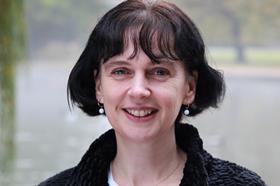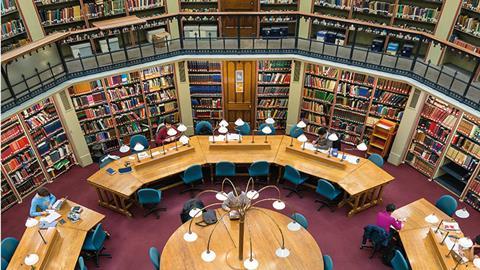Beatrice Honour Davy (1885-1966) was part of the 1922 cohort of women who made legal history by becoming lawyers. She was called to the bar at the Middle Temple in November 1922, alongside Helena Normanton among eight pioneering women barristers (Ivy Williams had been called to the bar at Inner Temple the previous May). However, nine years later, in 1931, Davy abandoned the bar, requalified as a solicitor and entered into a partnership with Edith Berthen. Who was Davy and why is she important?
Born in Exeter, Devon, Davy came from a privileged background. Her father Henry Davy was a hospital physician and her mother Beatrice, née Tucker, was the daughter of a Somerset solicitor (Walter Tucker, who was also the town clerk). Like many women of her class, she attended a girls’ boarding school (Grassendale, Bournemouth), returning to the family home for holidays and on completion of her studies. Also, like many of this generation she was not immune from loss. Her mother died when she was just 20 and her one sibling, a brother, died during the first world war.
Davy spent the war assisting the co-ordination and supply of war hospitals in Devon and then studied for the LLB at King’s College, London (perhaps because of her grandfather’s influence). On the passing of the Sex Disqualification (Removal) Act 1919, she joined the Middle Temple as a student member. She graduated in 1921 and was called on that historic night in November 1922. Some three months after her call on 17 February 1923, Davy was the first woman to appear at the Devon Assizes. In Weber v Weber & Payne she successfully appeared for an abandoned husband in an undefended divorce case, in which the client was awarded a decree nisi and costs. This was a promising start, as briefs and chambers were difficult to come by.
However, after less than a decade at the bar she requalified as a solicitor. We have some insight as to her reason from an extract she wrote on ‘The Bar’ for a book by J.A.R. Cairns, Careers for Girls (1928): ‘For a woman who must earn her own living the bar is the very last profession in the world.’
Davy entered into partnership with Edith Berthen (one of the first 10 women to qualify as a solicitor in England and Wales). Madge Easton Anderson joined them as an articled clerk and after qualification in 1937 joined the partnership, which became ‘Messrs Berthen, Davy and Anderson’, a remarkable achievement as they became the first law firm run just by women. The firm survived until 1951 when Davy retired.
Davy never married and died of a stroke at her home in West Sussex on 18 April 1966. She left £9,868 to her friend, distinguished dermatologist Dr Elizabeth Hunt (1876-1977). Hunt was the author of Diseases Affecting the Vulva, and had directed any copyright issues in her book to Davy, describing her as ‘… my friend… whose confidence and encouragement the book is due’.
Why is Davy’s life of relevance to us today? Davy was a pioneer. She paved the way for all outsiders to enter the legal profession and the product of her endeavour has benefited all women lawyers. She is also a valuable role model for all, including the law student, as she was a woman of resilience and determination. However, Davy is much more than this.
Her life tells us much about how to cope with change in our careers – especially change that is forced upon us. Davy wanted to practise at the bar but could not afford to; but her career switch led to a long and fruitful alternative calling in which she broke the mould by becoming part of the first all-women law firm. And she was able to remain in practice when so many of her contemporaries at the bar could not.

Most importantly, her life illustrates the damage done to others by the ‘protectionism’ exerted by those in power. The bar in the 1920s was fearful of competition and change; it wanted to protect its privilege and monopoly from women and other ‘outsiders’. The institutions of the law did everything to prevent women from entering the profession before 1919, and when women finally could enter it was made almost impossible for them to practise (for example by using a lack of lavatories as an excuse to prevent women joining chambers). Women like Davy had to use different strategies to survive in legal practice. Many lawyers still do this – especially criminal lawyers.
Protectionism continues today and protects the status quo. We see this not just in gender inequality but in all forms of discrimination, especially racism. Structural inequalities and a failure to truthfully examine our history of colonialism and the damage it has done (and continues to do) is a form of this ‘protectionism’. The Black Lives Matter movement is fighting against this protectionism. We all need to work together to bring about change and to stop people having to make life and career compromises. Every person should have equal social, economic and political power to thrive.
Dr Judith Bourne is a programme director for Law and an associate professor at St Mary’s University, Twickenham
































No comments yet